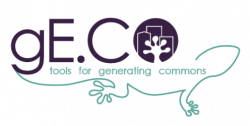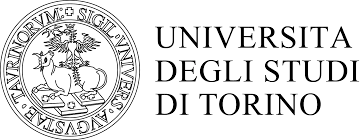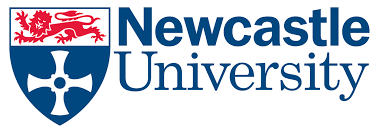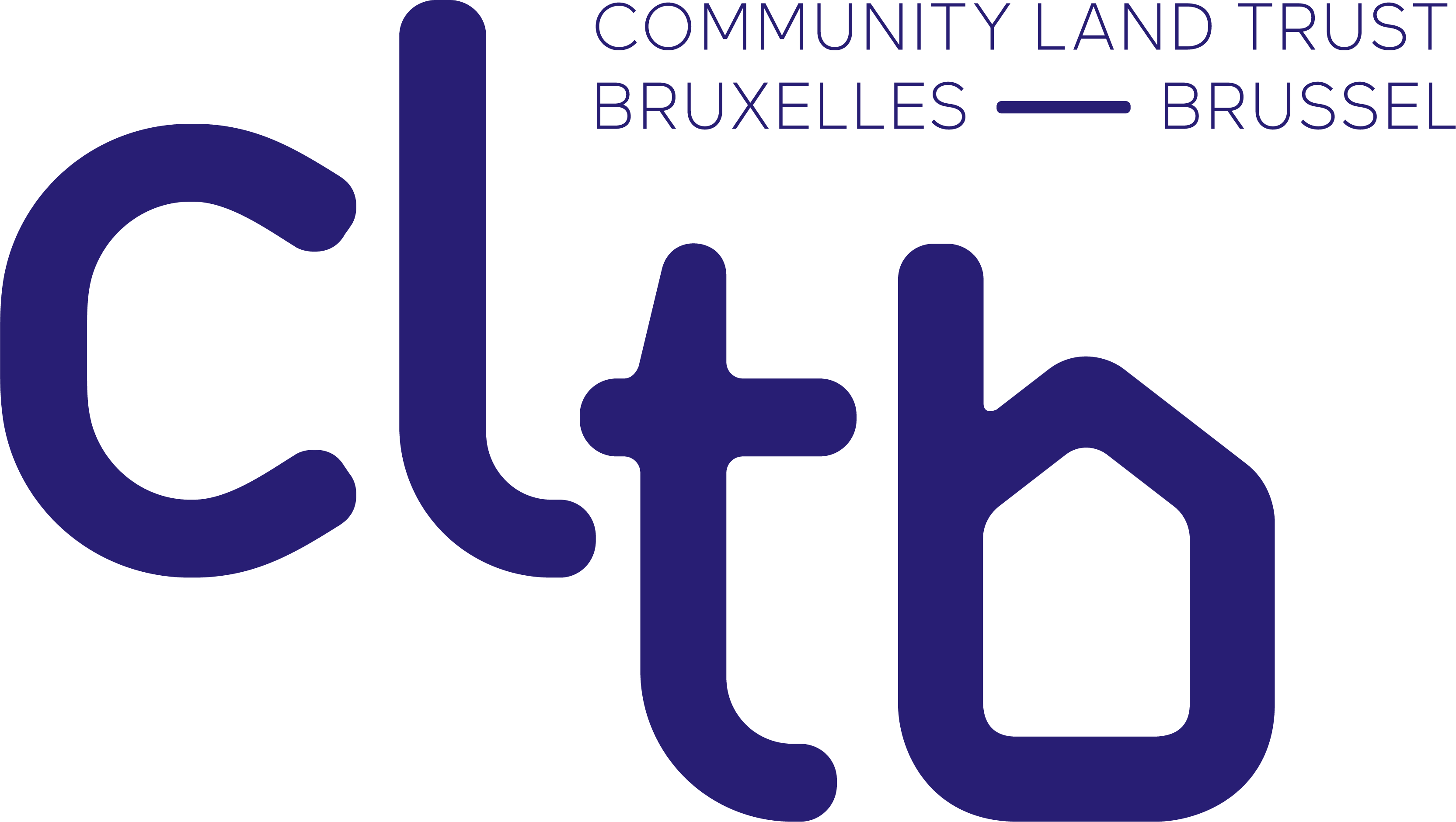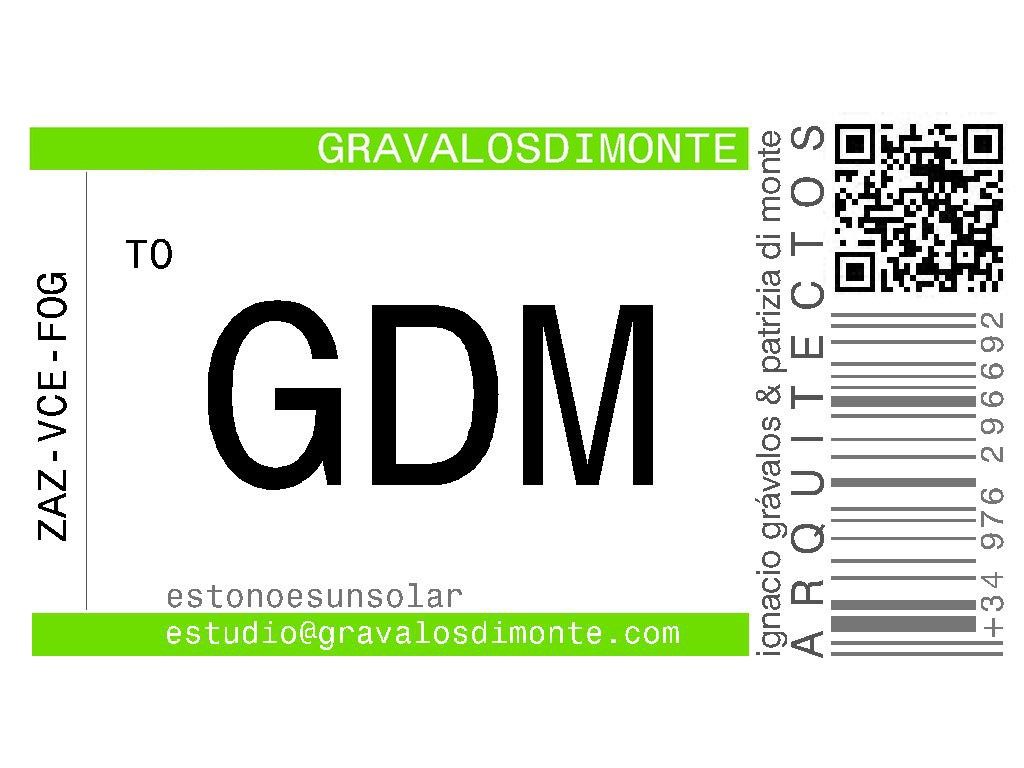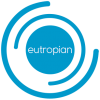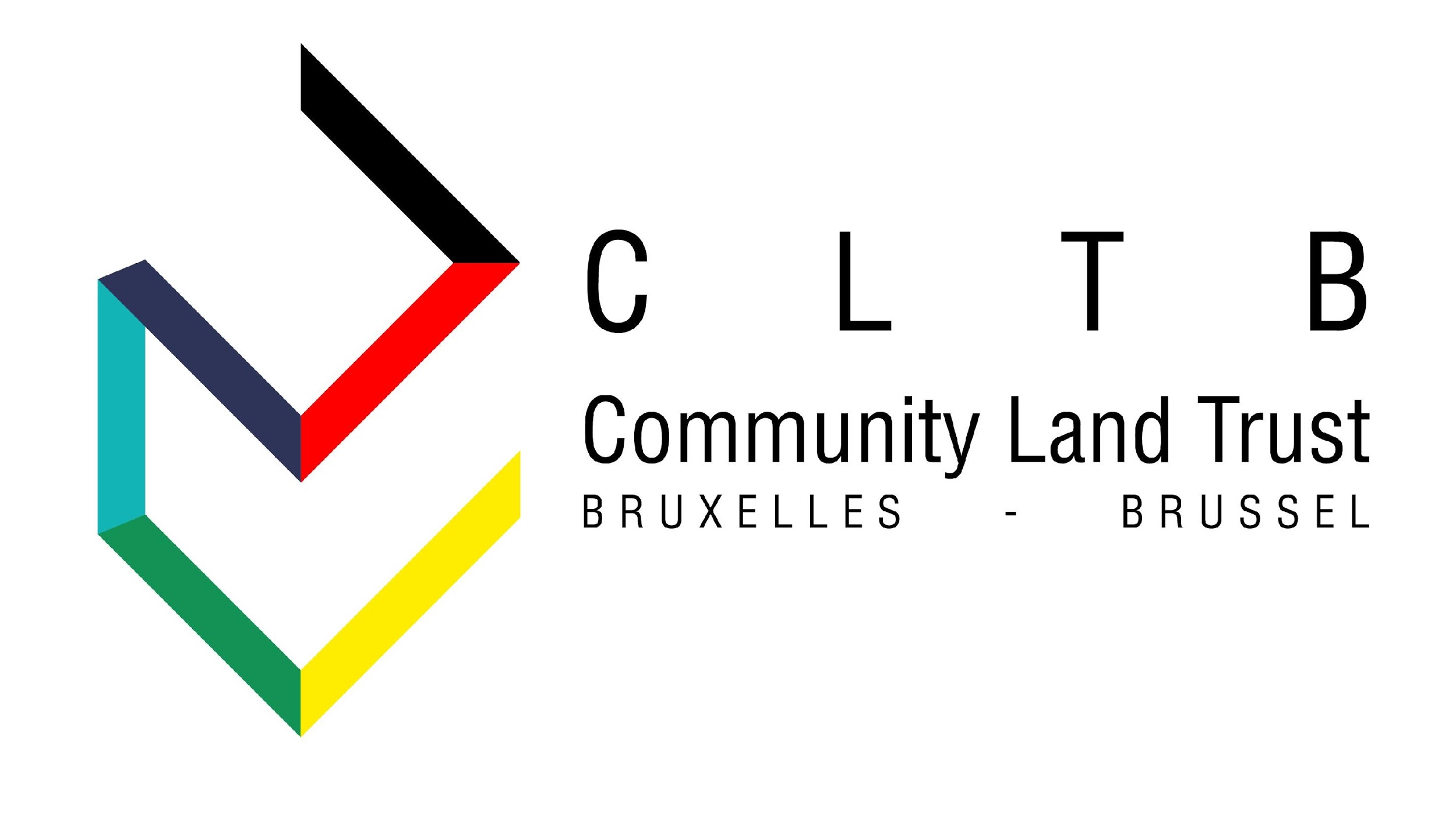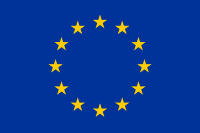The gE.CO project is starting! Follow us to know more about how commoning initiatives around Europe can be empowered!
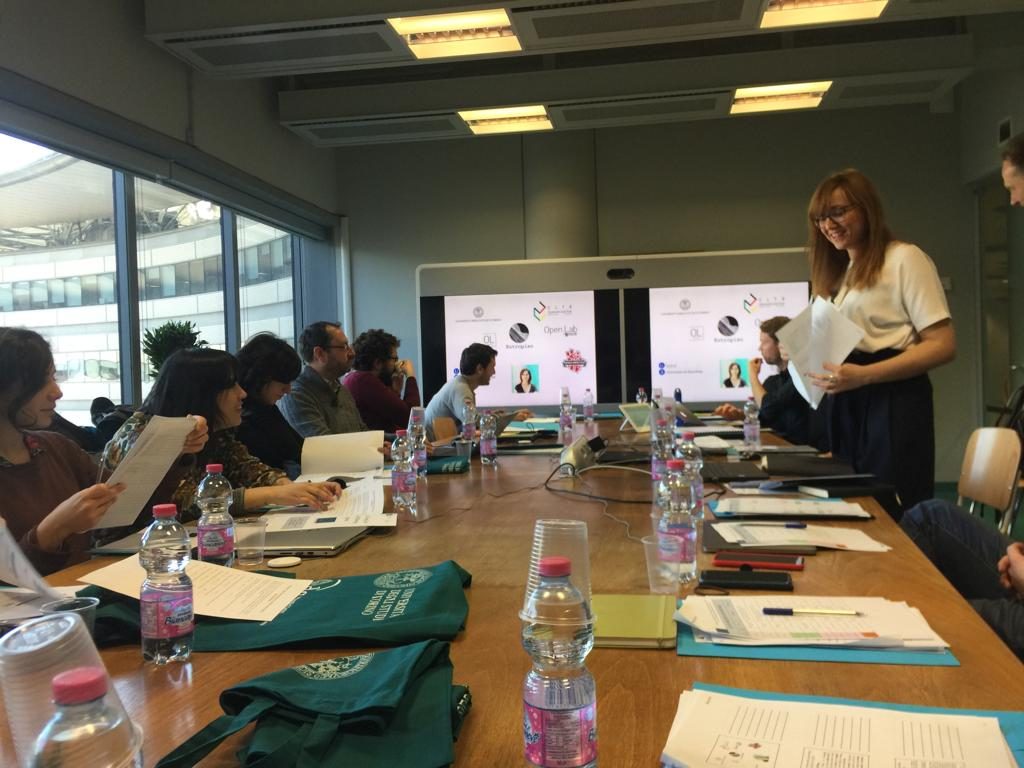
After a brief self-presentation of the partners, the Coordinator Alessandra Quarta (UNITO) introduces the project and shows context, object and methodologies as well as the general structure of Workplan, in terms of the relation between Milestones, WPs and deliverables. The Project Officer Bart Neersholten participates to the meeting, presentes the main EU policies linked to the call TRANSFORMATION-05 and introduces the management of the project. Questions and Answers conclude the first session of the meeting.

After lunch, the session re-starts with backgrounds presentation. According to the type of call, the Coordinator highlights the need to valorise those tools, technological devices and researches that partners have already developed, by making them available for the consortium and the implementation of the gE.CO project. In this way, it will be easier to be focused on networking activities, standardization and policies description, the implementation of which can be carried out through the connection of existing tools, thanks to the great interdisciplinarity of the consortium.
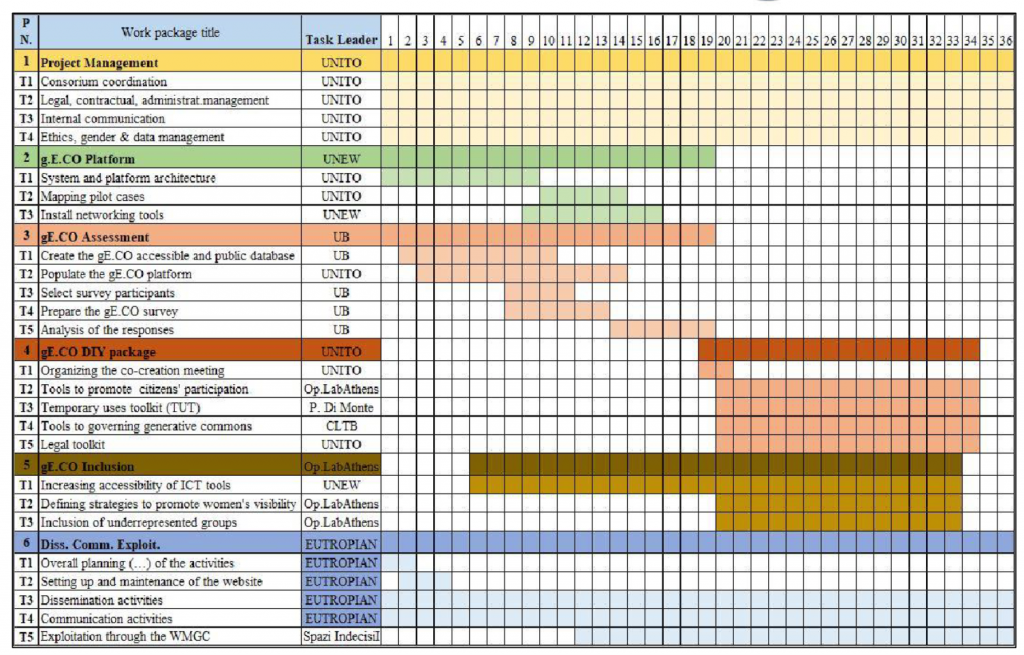
In particular,
- UNITO presents FirstLife, a platform already developed and tested in several cities. It will be the fundamental architecture for building the gE.CO platform where generative commons and local policies (so, municipalities) will be mapped and localized. FirstLife has different tools that facilitate communication, networking and interconnections: they will be essential to make gE.CO platform an original tool that will be able to support citizens and public administrations. In this way, the gE.CO platform will be not only a map but also a service, useful for strengthening existing experiences and for inspiring new local initiatives. UNITO presents the ongoing handbook written during the implementation of Co-City project. The handbook explains the local Regulation on urban commons, actually adopted in more than 200 Italian municipalities. These acts have introduced a new collaborative procedure for assigning and managing urban commons, also by co-planning activities with formal or informal groups of citizens interested in taking care of urban spaces. The handbook will be useful for the legal support of Italian municipalities but at the same time it is an important basis for the identification of those general problems that probably affects many municipalities in Europe, according to the common European framework of certain administrative rules and patterns.
- UNEW presents technological tools and apps that can improve participation and interaction at the urban level. In particular, open source systems and App Movement will be reconfigured according to the results of the assessment phase and will be embedded into the gE.CO platform as part of the gE.CO DIY package.
- OLA presents digital open source to improve citizens participation, as Iris Messenger, and the results of studies and works focused on giving more visibility to the participation of women in the management of urban commons.
- Spazi Indecisi presents the project of the Widespread Museum of the Abandonment, composed by different itineraries developed during the implementation of different project. This project and its methodology represent the basis for creating the Widespread Museum of Generative Commons, through which exploiting the results of the project, by promoting it in generative commons and municipalities mapped during gE.CO.
- Patrizia di Monte presents her works in the field of urban planning and programs to renovate urban voids. In particular, the program Oficina Usos Temporales can be an important starting point for gE.CO, since many European generative commons have been already identified and classified.
- Eutropian presents its skills and expertise in the field of urban commoning and, in particular, tools and connections for telling the stories of these urban transformations.
